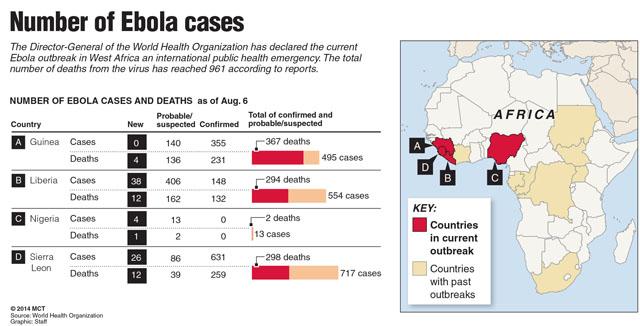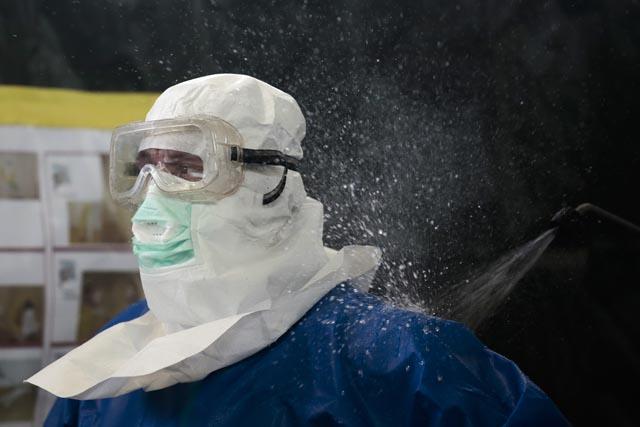You are here
Authorities ready to deal with any Ebola cases — official
By Khetam Malkawi - Aug 09,2014 - Last updated at Aug 09,2014

AMMAN — Although the Kingdom has not registered any case of the Ebola virus so far, health authorities are well prepared with a monitoring plan, a Health Ministry official said on Saturday.
Bashir Qasir, head of the ministry’s communicable diseases department, said “no cases have been registered so far in Jordan, but we are on the alert,” even though the outbreak of the disease is in West Africa.
“We are monitoring passengers at the border crossings in cooperation with the concerned authorities,” Qasir told The Jordan Times over the phone.
The World Health Organisation called the epidemic that has claimed nearly 1,000 lives a global health crisis, Agence France-Presse reported on Friday.
“WHO appealed for international aid to help afflicted countries after a rare meeting of the UN health body’s emergency committee, which urged screening of all people flying out of the affected countries in west Africa,” according to AFP, but “stopped short of calling for global travel restrictions, urging airlines to take strict precautions but to continue flying to the... countries hit by the outbreak”.
It called on countries around the globe to be prepared to “detect, investigate and manage” Ebola cases if they should arise.
The virus emerged in Guinea in March and has since spread to Sierra Leone, Liberia and Nigeria.
Qasir noted Jordan peacekeeping forces serve in some of these countries, “but they are very professional and know what to do in case of the outbreak of any disease”.
He explained that there are health units affiliated with the Royal Medical Services with these forces and “they are experts in their field.”
Ebola virus disease (formerly known as Ebola haemorrhagic fever) is a severe, often fatal illness, with a case fatality rate of up to 90 per cent. It is one of the world’s most virulent diseases, according to the WHO website.
The infection is transmitted by direct contact with the blood, body fluids and tissues of infected animals or people. Severely ill patients require intensive supportive care. During an outbreak, those at higher risk of infection are health workers, family members and others in close contact with sick people and deceased patients.
To avoid any potential infection of medics in case there is a suspected case in the country, they are trained, according to Qasir.
“We train them, especially those who work in the blood bank or have to take blood samples from patients, on how to handle it without risks,” he noted.
The severe acute viral illness is “often characterised by the sudden onset of fever, intense weakness, muscle pain, headache and sore throat”, according to WHO.
“This is followed by vomiting, diarrhoea, rash, impaired kidney and liver function, and in some cases, both internal and external bleeding,” the organisation said.
“People are infectious as long as their blood and secretions contain the virus... The incubation period, that is, the time interval from infection with the virus to onset of symptoms, is two to 21 days.”
Related Articles
The Health Ministry has taken a set of measures in line with World Health Organisation (WHO) regulations to deal with any suspected Ebola case, Health Minister Ali Hiasat told the Cabinet on Sunday.
Jordan is ready to deal with any potential Ebola cases in an isolated and equipped department at Al Bashir Hospital with a 30-bed capacity, Health Ministry Spokesperson Hatem Azrui said on Wednesday.
Travellers entering Jordan from Liberia, Sierra Leone and Guinea, the three West African countries hit hardest by the deadliest Ebola outbreak in history, will be monitored and undergo necessary checkups at the airport, according to the Ministry of Health.

















